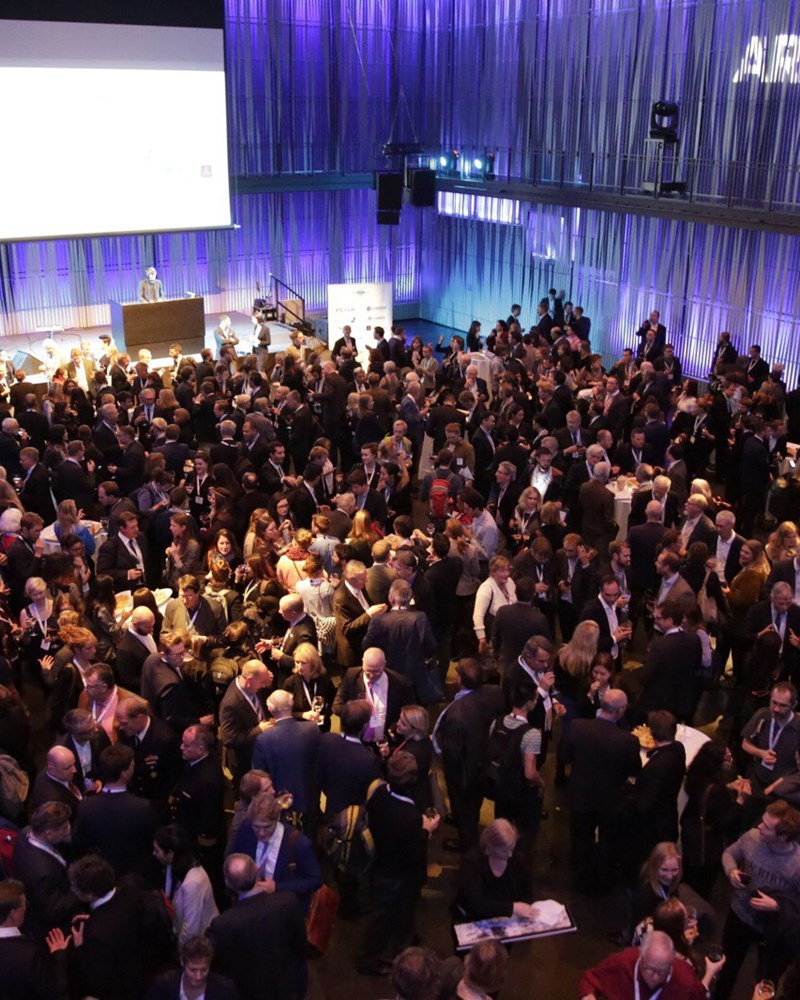2017 Breakout Sessions
Sunday, October 15, 08:00 - 09:00
Breakout Sessions are organized by the respective partners of the Arctic Circle, organizations, institutions, companies, think tanks, universities, or other bodies.
Community Mapping the Arctic
Organized by: Anchorage Museum, Lateral North (5. October 2017)
Sunday, October 15, 08:00 - 09:00
Location: Skarðsheiði, Third Level
SPEAKERS
- Julie Decker, Director of the Anchorage Museum, Alaska
- Graham Hogg, Lateral North, Scotland
Climate-service innovation & enhancing climate-resilience in Arctic businesses
Organized by: Climate-KIC Aps (22. September 2017)
The development of climate-services has been a much-trumpeted ambition of policymakers globally as part of the effort to limit the damages and risks caused by the onset of climate change. Climate-services are a key mechanism to close the gap between research institutions and business. In the Arctic, climate-services represent a unique opportunity to create tangible benefit from work being conducted at the forefront of climate science; to enhance the climate-resilience of Arctic industries whilst, providing forward-thinking businesses with new opportunities to achieve blue-green growth.
Sunday, October 15, 08:00 - 09:00
This session is designed to present the benefits of climate-services; evaluate their value to the long-term climate-resilience strategies of Arctic businesses; discuss why and how such services are to be made available to all Arctic stakeholders; and explore how climate-service development and development of other climate-resilient innovations can be accelerated to meet the growing demands of the Arctic economy.
By conducting this session we hope to further build upon the audiences pre-existing knowledge of what climate-services are and what they can achieve. We would like to draw their attention to the work of “beyond state-of-the-art” research projects such as Blue-Action (EU Horizon 2020 project) and the implications that such work can have for businesses, communities and other such organizations operating in the Arctic region.
Drawing on the first-hand experiences of some of our speakers, we want to transmit to the audience the needs and opportunities of smaller and larger Arctic businesses, with concrete examples of how the products of climate-service development can be effectively incorporated into a long-term business strategy.
Finally, we aim to get the audience to think about the future of the development of climate-service and other climate-related technologies, and what “infrastructure” is needed to foster innovation in this field.
Speakers:
- Mark Payne, Senior Researcher, Danish Technical University: Introduction to climate-services: the opportunities and the benefits
- Mads Randbøll Wolff, Project Manager Nordic Ministry Council for the Nordic Pavilion at COP23: Arctic SME’s and achieving climate resilience
- Øvin Aarnes, DNV GL: Climate-services and their role in long-term business strategy
Panel:
- Peter Vangsbo, Nordic Business Developer Climate-KIC: Facilitating greater innovation within climate services and climate-resilience, breaking down knowledge silos
Moderator:
- Solveig Zophoniasdottir, Climate KI
The Greenlandic ice service in a changing Arctic
Organized by Danish Meteorological Institute (13. September 2017)
The change and reduction of the Arctic sea ice regime
Speakers:
- Marianne Thyrring, Director General the Danish Meteorological Institute: The importance of ice service and international collaboration
- Keld Qvistgaard: Senior Ice Advisor, Client Relations Manager: The DMI Greenland Ice Service – new requirements, new possibilities
limate service innovation & enhancing climate resilience in Arctic businesses
Organized by: Climate-KIC Aps (11. September 2017)
Climate services are seen as a key to closing the gap between research institutions and business. In the Arctic, climate services represent a unique opportunity to create tangible benefit from work being conducted at the forefront of climate science; to enhance the climate resilience of Arctic industries whilst providing businesses with opportunities to achieve blue-green growth. Climate-service
Sunday, October 15, 08:00 - 09:00
This session will evaluate the long-term climate resilience strategies of Arctic businesses; discuss why and how such services are to be made available to all Arctic
How can the products of climate-service development be effectively incorporated into long-term business strategies? In this session, business actors, climate service developers, and policy makers will examine the future development of climate service and other climate-related technologies, and the infrastructure needed to foster innovation in this field.
Speakers:
- Mark Payne, Senior Researcher, Danish Technical University: Introduction to climate-services; the opportunities and the benefits
- Anna Karlsdóttir, Senior Research Fellow, Nordregio: Climate services and their role in long-term business strategy
- Mads Randbøll Wolff, Project Manager, Nordic Ministry Council for the Nordic Pavilion at COP23: Arctic SME’s and achieving climate resilience
- Peter Vangsbo, Nordic Business Developer Climate-KIC: Facilitating greater innovation within climate services and climate-resilience, breaking down knowledge silos
Chair:
Solveig Zophoniasdottir, Climate KIC
Going local! - Arctic future strategies from a local perspective
Organized by: Institute of the North, Alaska, and CONOW (Centre for International Relations) (7. September 2017)
Nearly four million people live in the Arctic – less than 1% of the world’s population in 400 communities that span an area that is 15% of the world. Local and regional governments, who deliver essential services, represent these communities’ perspectives and priorities and advocate
The region’s communities are faced with the direct impacts of climate change and globalization – the lessening of sea ice extent, the increase in marine shipping and tourism, thawing permafrost and coastal erosion, lack of modern infrastructure and essential services, and new economic opportunities. In this dynamic and changing environment, it will be local communities who adapt, manage risk, and work to deliver benefits to community members.
To address these challenges and opportunities, the Arctic region needs new
This breakout session brings together representatives from
Speakers:
- Dan Lewis, Nairobi, Chief Risk Reduction Unit UN Habitat
Representatives from the Arctic Mayors Forum established in Fairbanks on May 11, 2017:
- Mayor Ida Pinnerød, Bodø, Norway
- Mayor Asii Chemnitz Narup, Sermersooq, Greenland
- Mayor Eiríkur Björn Björgvinsson, Akureyri, Iceland
Chairs:
- Christin Kristoffersen, Oslo, former Mayor of Svalbard, partner Conow & AAG
- Nils Anderssen, Fairbanks, Director Institute of the North

